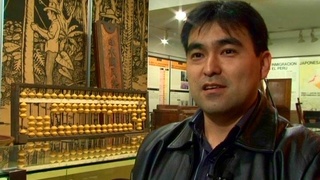Interviews
His Shin-Issei parents
They met in Seattle, as students, University of Washington.
My dad’s from Mie-ken, Mia Prefecture, Iga, which is like the ninja, the famous Iga ninja clan is from, it’s from that village. When Japan was divided, both of the clans had ninjas, like assassins, like espionage people.
And then my mom’s from Okinawa, which is a whole other place. My mother was part of the government program – the U.S. government – because Okinawa belonged to the U.S. government for a period of time after the war so I think she was part of their “appeasement” to the people of Okinawa, to kind of give them these things like a full scholarship. And my mom was like…basically…if the U.S. government hadn’t offered her that, she wouldn’t have had the opportunity to get her master’s, or continue education because women in are not…it’s really not…it wasn’t a priority to have an educated…
They’re naturalized now, they got American citizenship because they like living here. But my dad, he watches satellite T.V. – T.V. Japan. I don’t know, I think they really enjoy living here but they definitely understand that they’re Japanese.
Date: August 21, 2018
Location: California, US
Interviewer: Sharon Yamato
Contributed by: Watase Media Arts Center, Japanese American National Museum










